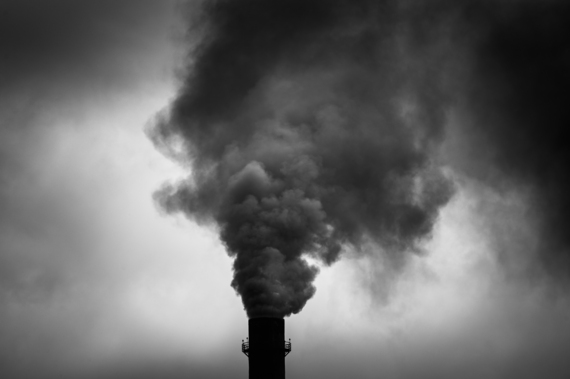Recently the U.S. Energy Information Administration reported that in 2016, for the first time in history, natural gas will surpass coal as the top source of energy in the U.S. This revelation comes on the heels of a string of bad news for the coal industry over the past few months, with Oregon passing a bill to phase out coal from its power supply, Missouri-based Peabody Energy -- the world's largest private coal company -- filing for bankruptcy, and the January bankruptcy filing of Arch Coal which owns the second largest U.S. Coal reserves.
Faced with these and other harbingers of their own mortality, coal producers have been quick to assign blame for the decline in their financial returns. Their most recent scapegoat is the Department of the Interior, which recently announced a moratorium on new coal leasing on public lands while it issues a comprehensive review of coal mining on federal lands, which accounts for 40 percent of all U.S. coal produced.
While the costs of coal development -- financial, environmental, human -- have changed, and the public's perception of the value of our public lands has increased as has their role in the burgeoning recreation economy, the value to U.S. taxpayers of our federal coal program has not been assessed or updated in more than 30 years. The aim of the review is to bring federal policy in line with reality, and address gaping loopholes in the system that have allowed coal companies to cheat U.S. taxpayers out of the revenue they deserve and avoid government accountability since the program's inception.
Unsurprisingly, since the Interior announcement was made at the end of January, the Department has been subject to a steady string of hyperbolic attacks on the part of industry leaders and lawmakers in coal-producing states. Their claims ignore a bevy of facts inherent in DOI's proposal, which mirrors similar actions taken by Presidents Nixon and Reagan. For one, the multi-year review only applies to new leases, meaning that it will have no impact on existing coal production, which is continuing during the review and moratorium. In fact, coal companies themselves have admitted to having 20 years of coal already under lease, so mining companies can't point to a loss of those revenue streams.
All of this posturing and finger-pointing belies one overwhelming truth with which the coal industry must come to terms: the domestic and international markets for coal are shifting. Demand for coal is plummeting as cleaner forms of energy are cheap and easily available. As this trend continues, so will the slow death march of fossil fuels. Our aging coal infrastructure means that by 2020, it will be too expensive to keep producing energy from coal at current levels.
While natural gas has eclipsed coal by being cheaper and cleaner, that alone doesn't explain coal's decline. Consumers have been asking for cleaner, healthier, more efficient sources of energy for years, and investors and policy-makers have responded. As I look out into the future, it's clear that renewable energy holds far and away the greatest promise for growth for many decades to come because operating costs are lower, it does not pollute the air we breathe, and does not contribute to climate change. Coal simply does not hold that potential in the eyes of investors or Wall Street, who have consistently moved away from coal investments.
And policy-makers have taken important steps to help make this growth happen as well. California and other states have been leaders in creating renewable portfolio standards that have been critical to ramping up clean energy development, and smart tax incentives have helped bring new technologies into the marketplace.
Just as smart policy has been essential to the growth of renewable energy, so too will it be important for transitioning away from coal. The steps taken to help communities transitioning away from coal should be continued and expanded. The Department of Interior's comprehensive review of the federal coal program is equally important to managing the decline in production in a way that reflects our values, is fair to taxpayers and the health of local communities.
The coal industry is facing a challenge far greater and more complex than any one presidential administration. As consumers, investors and as a nation, we are voting with our wallets and our values -- shifting a billion-dollar industry as we do so.

